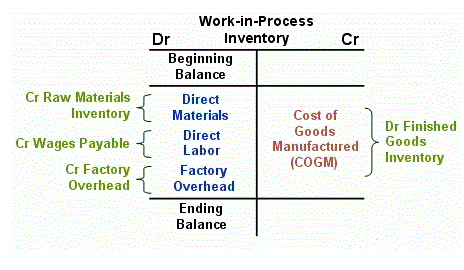
Earnings may be determined on a piece-rate, salary, commission, or some other basis, but in all such cases the overtime pay due must be computed on the basis of the average hourly rate derived from such earnings. This is calculated by dividing the total pay for employment (except for the statutory exclusions noted above) in any workweek by the total number of hours actually worked. The regular rate includes all remuneration for employment except certain payments excluded by the Act itself. So, if an employee works 50 hours in one week and 30 hours the next, they would still be owed overtime pay for those 10 extra hours worked in the first week. Further, the workweek is calculated based on the pay period, not the calendar week.
- Any discrepancies should be addressed right away because time to recover lost earnings is limited.
- Yes, non-discretionary bonuses (those tied to performance or other criteria outlined in advance) must be included in calculating an employee’s regular rate of pay.
- Besides the Fair Labor Standards Act’s (FLSA) regular overtime law, there are rules for overtime exemptions, fluctuating workweeks, weighted average and premium pay.
- If you are entitled to receive overtime and you have not been paid the overtime that you are entitled to receive, you should enlist the help of an employment law attorney who handles such claims in your state.
- For salaried non-exempt employees, divide their weekly salary by the standard 40-hour workweek to calculate their regular hourly rate.
- Misclassifying employees as exempt may result in liability for unpaid overtime, and it is the employer’s responsibility to prove an employee’s exempt status.
FederalRevenue Threshold for Employers
Similarly, manufacturing workers must be paid overtime after 10 hours in a workday or 40 hours in a workweek, whichever is more beneficial to the employee. Oregon law requires most employers to pay eligible employees overtime wages for any hours worked beyond 40 in a single workweek. Unlike some states, Oregon does not have a daily overtime threshold, except in specific industries (see below).
Jul Overtime Pay: Beyond the 40-Hour Rule
Administrative or professional employees may receive pay on a salary or fee basis. The term “salary” is often used to refer to any type of pay received by employees who are subject to the EAP exemption. To avoid non-compliance, employers should track hours accurately and address unauthorized overtime through disciplinary policies, not by withholding pay. States like California have specific protections, such as the one-day rest rule, which prohibits employers from requiring employees to work more than six consecutive days in a workweek. Employers may be required to pay back wages, liquidated damages, and legal fees. Regular audits of employee classifications can help prevent costly mistakes.

Unpaid OvertimeFAILURE TO PAY OVERTIME
By working together and fostering a culture of transparency and respect, we can minimize disputes and ensure that employees are fairly compensated for their time and efforts. HR often caps it at hours in overtime to avoid health and productivity issues. This myth comes from Accounting for Marketing Agencies tax withholding, i.e., extra pay can push you into a higher tax bracket temporarily. Some employers believe they can establish their own overtime policies that differ from Oregon state law. To make sure you’re in compliance with these complex rules, be sure to work closely with a payroll professional. To receive this treatment, the premium pay must meet the definitions outlined in 29 U.S.
- Where non-cash payments are made to employees in the form of goods or facilities, the reasonable cost to the employer or fair value of such goods or facilities must be included in the regular rate.
- Maintaining accurate records is crucial for employers to comply with overtime laws and to protect themselves.
- Even if an employer prohibits overtime, they are still required to pay for unauthorized overtime hours worked by the employee.
- Estimates suggest overtime tax could affect 8% of hourly workers who regularly log overtime alongside 4% of salaried workers eligible under specific FLSA provisions.
- The exemption applies to roles like software developers and systems analysts but excludes general IT support or helpdesk workers.
The Main Overtime Statute(s) in Oregon
- Under Oregon law, employers must pay for all overtime hours worked, even when not pre-approved.
- Employees whom the law defines as “administrative, executive, or professional” need not be paid overtime.
- Your lawyer will also work to ensure your rights are protected and to help you recover your lost earnings and any damages that you have suffered.
- If a salaried employee fails to meet any of these criteria, they are entitled to overtime pay.
Exempt employees are typically salaried and meet specific criteria set by the Fair Labor Standards Act (FLSA), including certain job duties and a salary threshold. These employees, often in executive, administrative, or professional roles, are not eligible for overtime pay. On their paystubs, exempt employees do not receive additional compensation for extra hours worked. In conclusion, while most jobs require overtime pay after 40 hours per week, exemptions and state-specific laws can affect eligibility and calculations. An employer who requires or permits an employee to work overtime is generally required to pay the employee premium pay for such overtime work.
StateExempt Employees

Moreover, the Department of Labor and the courts may award “liquidated damages” of two-times the amount of wages due. Essentially, the regular rate of pay is the total compensation an employee earns in a workweek divided by the total number of hours worked. While overtime laws in Oregon primarily cover hourly employees, some salaried employees may also be eligible for overtime pay. Salaried employees earning less than $35,568 per year are entitled to overtime for all hours worked over 40 in a workweek.
Overtime Pay: Beyond the 40-Hour Rule
This publication is for general information and is not to be considered in the same light wage earners are eligible for overtime after 40 hours per week worked. as official statements of position contained in the regulations. Michael received his Juris Doctor from the University of California— Davis School of Law and is a member of the State Bar of California, the State Bar of Washington, and the American Bar Association.
Does an Employer Have to Pay Overtime After 40 Hours?
For federal compliance, the focus is on total hours exceeding 40 in a single workweek. This means salaried exempt employees won’t get to see the overtime pay tax break. This disparity between net sales hourly and salaried staff could stir resentment and strain employee morale. Companies will need to explore compensation benefits such as flexible benefits and bonuses to keep morale steady. Exemptions exist for specific roles, such as certain salaried executive, administrative, and professional employees, DOT-regulated drivers, outside salespeople, and some agricultural workers.
StateOvertime Threshold for Salaried Employees

Nevertheless, the risks of falling out of compliance remain too important to overlook this critical issue. Extra pay for working weekends or nights is a matter of agreement between the employer and the employee (or the employee’s representative). The FLSA does not require extra pay for weekend or night work or double time pay. Understanding the distinction between exempt and non-exempt employees is crucial for proper overtime pay management. Overtime laws can differ significantly from state to state, often providing greater protections or imposing additional requirements beyond federal law.